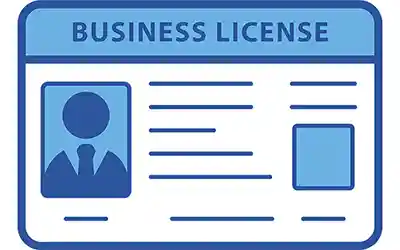The garage door industry is booming, thanks to the increasing demand for home improvements and secure storage solutions. Starting your own garage door business can be a great opportunity. You can offer important services like installation, repair, and maintenance.
However, starting a garage door business requires careful preparation. You need to handle many tasks. This includes legal registrations and certifications.
You also need to create a clear business plan. Finally, you must set up operation systems.
This guide shows you how to build a successful business. It covers finding your niche and marketing your services well. It also explains how tools like all-in-one garage door software can help make your operations easier.
Table of Contents
- Choose Your Garage Door Business Specialty
- Developing a Comprehensive Business Plan
- Establish Your Legal Entity
- Open a Business Bank Account
- Implement Accounting Systems
- Obtain Licenses and Permits
- Secure Business Insurance
- Invest in Essential Tools and Equipment
- Market Your Garage Door Business
- Conclusion
1. Choose Your Garage Door Business Specialty
One of the first and most important decisions you’ll make when starting a garage door business is choosing your niche. Your expertise determines your service offerings, target market, and competitive edge.
Why Specialize?
Focusing on a specific niche helps you gain expertise. It also helps you build a strong reputation. This can lead to higher rates for your services. Customers often pay a premium for specialists who deliver quality results.
Understand Your Market
Garage door businesses typically serve two main markets:
- Residential Customers: Projects include garage door installation, replacement, and repairs for homeowners. These jobs often require basic tools and knowledge, making them ideal for new businesses.
- Commercial Customers: Large-scale projects, like garage doors for warehouses, stores, or offices, need knowledge of building codes and special tools.
Niche Examples
- Steel Garage Door Replacement: Focus on durable and secure solutions.
- Custom Garage Doors: Cater to clients looking for unique designs.
- Smart Garage Door Installations: Offer modern features like app controls and automation.
- Energy-Efficient Solutions: Appeal to eco-conscious customers with insulated doors that reduce energy costs.

2. Developing a Comprehensive Business Plan
A good business plan acts as a roadmap for your company. It defines your goals, identifies your target audience, and outlines how you’ll achieve success. A strong business plan is essential when seeking funding from investors or banks.
Core Components
- Executive Summary: Summarize your business goals, mission, and vision.
- Market Analysis: Research competitors in your area, perform a SWOT analysis, and identify growth opportunities.
- Marketing Strategy: Detail customer acquisition tactics, such as SEO, local advertising, and referral programs.
- Financial Projections: Include startup costs, overhead expenses, and revenue forecasts using tools like QuickBooks or Xero.
For additional guidance, the Small Business Administration (SBA) offers templates and financial planning tools.
3. Establish Your Legal Entity
Selecting the right legal structure affects taxation, liability exposure, and access to financing. Common options include:
- Sole Proprietorship: Easy to set up but offers no liability protection.
- Limited Liability Company (LLC): Shields personal assets from business risks.
- Corporation (S-Corp or C-Corp): Provides tax benefits and enhanced credibility.
Register your business with your state’s Secretary of State. Then, get an Employer Identification Number (EIN) from the IRS.
4. Open a Business Bank Account
A dedicated business bank account separates personal and company finances. Consider banks offering:
- Low fees and high savings rates
- Convenient online banking
- Small business loan options
5. Implement an Accounting System
Proper financial management ensures business success. Choose between:
- Cash-Based Accounting: Records transactions when money is exchanged.
- Accrual-Based Accounting: Tracks income and expenses as they occur.
Software like QuickBooks, FreshBooks, or Xero can help automate bookkeeping and generate reports.
Using a platform like QuickBooks helps simplify bookkeeping. Tools for integration with QuickBooks are also very useful. This gives you real-time financial reports. With these reports, it is easier to manage your finances.
6. Obtain Licenses and Permits
Compliance with local regulations is critical. Common requirements include:
- Business name registration
- Contractor licenses
- OSHA safety certifications
Visit your state’s official licensing website for up-to-date requirements.

7. Secure Business Insurance
Protect your business with essential coverage such as:
- General Liability Insurance: Covers property damage and personal injury claims.
- Workers' Compensation: Protects employees injured on the job.
- Commercial Auto Insurance: Covers business vehicles.
Compare quotes from providers such as GEICO, Hiscox, and Nationwide to find the best coverage.
8. Invest in Tools and Equipment
Essential tools include:
- Hand Tools: Screwdrivers, wrenches, and tape measures.
- Power Tools: Drills and saws.
- Safety Equipment: Gloves, goggles, and ear protection.
- Service Vehicle: Equipped for transporting tools and materials.
Use simple field service software to track tools and automatically replenish stock as needed.
9. Market Your Business
A strong marketing strategy ensures visibility and growth. Effective tactics include:
- SEO Optimization: Build a website optimized for local searches (e.g., "garage door installation near me").
- Social Media Marketing: Engage with customers on Facebook and Instagram.
- Referral Programs: Offer incentives for customer referrals.
- Local Advertising: Use flyers, vehicle wraps, and business cards to reach offline audiences.
For SEO best practices, refer to Google's SEO Starter Guide.
Conclusion
Starting a garage door business can be a profitable venture with the right planning and execution. By picking a niche, making a solid business plan, and using tools like Bella FSM, you can improve your operations and draw in customers.
With dedication and strategic planning, you can establish yourself as a trusted service provider in this growing industry.
FAQs
- How much does it cost to start a garage door business? Startup costs typically range from $10,000 to $50,000, depending on equipment and operational scale.
- What skills do I need to run a garage door business? Technical skills for installations and repairs, as well as business management and customer service abilities.
- How long does it take to see profits? With effective marketing and efficient operations, profits may be realized within the first year.
- Do I need certifications to start a garage door business? Certifications are not always required but can enhance credibility and customer trust.

